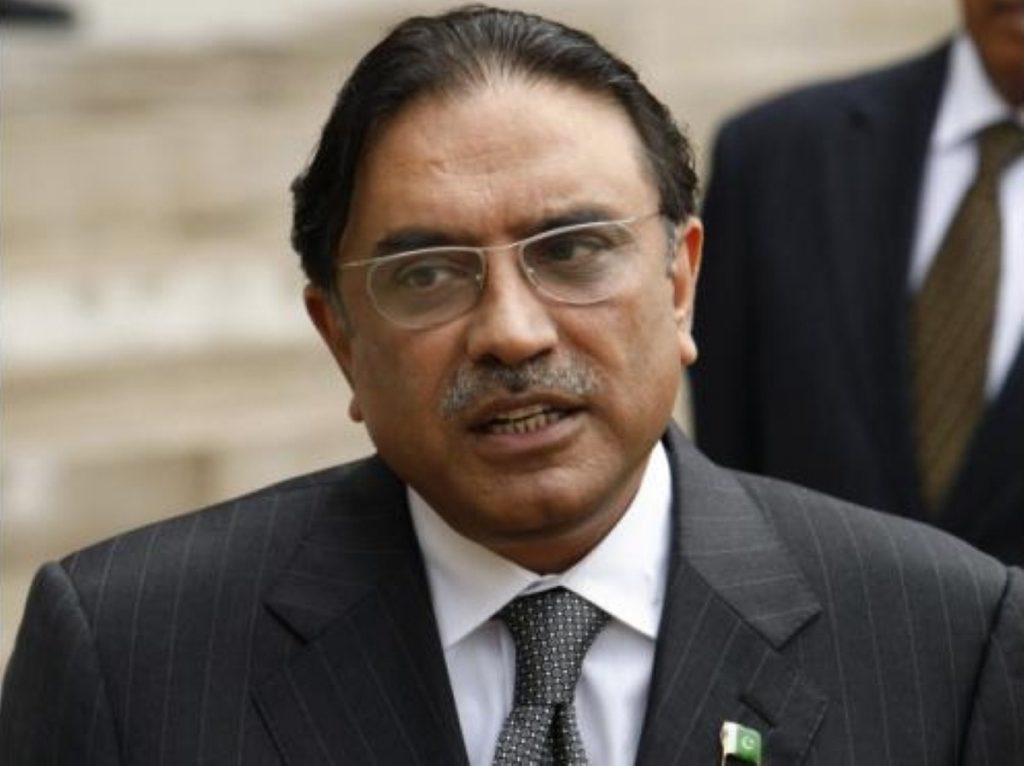Cameron ‘alienating’ British Pakistanis
The diplomatic row between Britain and Pakistan could have a knock-on impact on domestic politics as British Pakistanis turn their back on the prime minister, it has been claimed.
Qassim Afzal, head of the Liberal Democrats Friends of Pakistan group and a member of the party’s federal executive committee, told politics.co.uk that David Cameron’s comments had left British Pakistanis “very disturbed”.
But the prime minister stood by his comments, which he described today as a “clear and frank answer to a clear and frank question”.


Last week the prime minister said Pakistan could not “look both ways” in the struggle against the Taliban, after leaked documents suggested Pakistan’s intelligence services had assisted the insurgency.
His remarks have sparked outrage at “every level”, Mr Afzal said.
President Asif Ali Zardari, who arrives in London today before meeting with Mr Cameron on Friday at Chequers, said the prime minister’s comments were “uncalled for” in a meeting with French president Nicolas Sarkozy on Monday.
Mr Afzal claimed frustration extended to British Pakistani community leaders and those interested in politics.
He suggested the failure of western countries to fully appreciate the extent of Pakistan’s contribution to the ‘war on terror’ would result in a major drop in political support for the Conservatives.
“People I’ve spoken to… feel Cameron’s really damaged the relationship between Pakistan and Britain,” Mr Afzal said.
“They keep saying Pakistan has to do more and yet how much more can it do?
“Many politicians feel that the west should have done a lot more in trying to develop the economic situation of Pakistan, strengthening Pakistan’s intelligence and its borders as well.”
Mr Cameron’s comments provoked an especially strong reaction as they were made in India, whose history of antagonism with Pakistan only served to heighten sensitivities.
Last week’s trade delegation to India resulted in a number of major business deals, including the £700 million sale of Hawk jet aircraft by BAE.
Many suspect Mr Cameron’s statements about Pakistan may have been motivated by a desire to appease India, Mr Afzal said.
He added: “What really upset a lot of people is that Cameron hasn’t seem to have reflected on the thousands of Pakistani soldiers that have died alongside the coalition.”
British Pakistanis standing for the Conservatives at the general election made significant gains in a number of constituencies, although they did not succeed in making major breakthroughs for the Tories.
Those gains are now likely to be reversed by Mr Cameron’s comments, Mr Afzal suggested.
Last week the prime minister said: “We cannot tolerate in any sense the idea that this country is allowed to look both ways and is able, in any way, to promote the export of terror, whether to India or whether to Afghanistan or anywhere else in the world.”
But Mr Cameron has been attacked by experts of a “total lack of understanding of the reality on the ground”.
Marie Lall, of the University of London’s Institute of Education and the Chatham House thinktank, told politics.co.uk that Pakistani links with the Taliban were to be expected – and would not necessarily undermine the war effort.
“The reality for Pakistan is once Nato forces pull out and this war is lost, there will be a government which will have a certain dimension of Taliban participation,” she explained.
“These links have to remain. There’s no reason why Pakistan would strategically put itself at odds with… its neighbour. From a western point of view it does look like a double-edged game. And to a certain extent it is.”
Counter-terrorism is on the agenda for Mr Cameron’s meeting with Mr Zardari on Friday, No 10 has confirmed.
Pakistani diplomats embarked on a campaign of protest in the lead-up to the talks, with Britain’s high commissioner in Islamabad summoned by Pakistan’s foreign minister and officials pushing the message that the Pakistani president will not hold back at Chequers.
“Any continuation of such a policy stance by the UK government could lead to fissures in the historically sound relationship between the two countries,” the Guardian newspaper quoted Pakistan’s information minister Qamar Zaman Kaira as saying.
“But we hope that this will not happen because Pakistan’s stand against terrorism is based on facts evident to everyone.”
Mr Zardari has steadfastly ignored calls to abandon his trip entirely.
Major flooding in the north of the country has isolated tens of thousands of people and killed over 1,400. Health agencies are now warning a cholera outbreak could leave many dead in the Swat valley.
“The floods are catastrophic,” Oxfam’s country director in Pakistan Neva Khan said.
“Those affected were already vulnerable and mostly poor and now they’ve been made homeless and in need of help once again.”
Two British politicians, Labour MP Khalid Mahmood and Lord Ahmed, have cancelled their scheduled meeting with Mr Zardari in protest at the president’s failure to return home.
“A lot of people are dying there,” Mr Mahmood told the BBC.
“No matter what he can do or can’t do, he should be there to try to support the people, not swanning around in the UK and France.”
Dr Lall argued ordinary Pakistanis were paying the price for the conflict, after daily bombings last autumn followed a crackdown on the Taliban.
She added: “Cameron should understand a little more about the realities on the Pakistan ground, specifically with regard to the civilian population which first has been battered by all these bomb attacks, and now has been battered by a natural catastrophe.
“While Zardari is happily sipping tea with him there is a natural catastrophe going on across the country. The president should be at home.”












